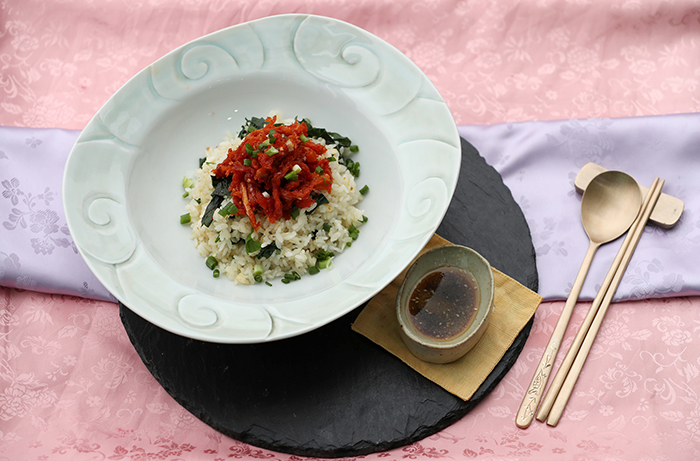View this article in another language
- 한국어
- English
- 日本語
- 中文
- العربية
- Español
- Français
- Deutsch
- Pусский
- Tiếng Việt
- Indonesian

Bap, cooked rice, holds many meanings for Koreans including sharing in a communal culture. (Korea.net DB).
By Korea.net Honorary Reporter Juan Baig from Paraguay
For Koreans, bap, cooked rice represents many things.
Bap is an indispensable component of Korean cuisine as the center of every Korean meal. For this reason, this dietary staple is the main source of energy for Koreans, who are said to “live through bap’s energy.”
In the Korean language, the word “bap” can also refer to an entire meal itself. Koreans often greet each other by asking: “Have you eaten bap?” This question in Korean has the same meaning as “How are you?” and is a common Korean way of simply saying hello.
So why do Koreans greet each other by asking if they’ve eaten bap?
Koreans have endured many difficulties throughout their turbulent and often tragic history. During and after Japanese colonial rule of the Korean Peninsula and the Korean War, many Koreans suffered from poverty and hunger to the point that eating regularly was quite uncommon. So by asking whether someone has eaten, people could determine how that person’s life was.
Given this historical background, asking whether someone has eaten bap has persevered as a Korean greeting showing concern for others.
In addition, bap can symbolize happiness and love. Koreans celebrate key moments in their lives by inviting family and friends to meals. Treating others to food is a longstanding Korean custom of sharing both joy and friendship. For example, a mother expresses love for her children by making them warm rice.
Bap is thus not merely a Korean culinary staple but also represents strength and sharing in a communal culture. In short, bap in Korea symbolizes life, history and love.
wisdom117@korea.kr
* This article is written by a Korea.net Honorary Reporter. Our group of Honorary Reporters are from all around the world, and they share with Korea.net their love and passion for all things Korean.